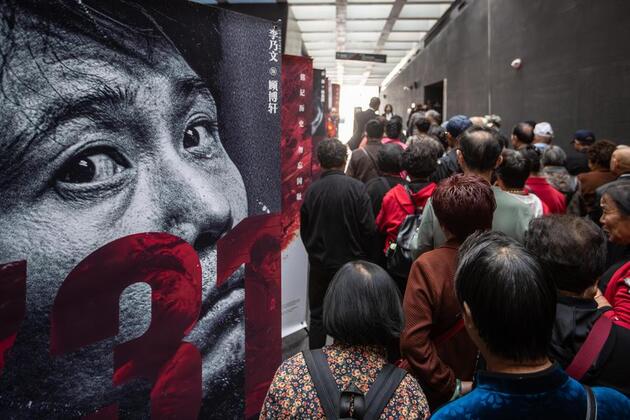Move FM Australian News

Update: Film on Japan’s Unit 731 opens in China as call to remember history, safeguard peace
Sep 19, 2025BEIJING, Sept. 18 (Xinhua) — A film depicting the atrocities committed by Japan’s notorious Unit 731 during World War II opened in theaters across China on Thursday, coinciding with the anniversary of the September 18 Incident and presented both in remembrance of past suffering and as a call to safeguard peace.
“Evil Unbound” was released on Sept. 18, the 94th anniversary of the September 18 Incident, which marked the start of the Chinese People’s War of Resistance against Japanese Aggression. This year also marks the 80th anniversary of the victory in China’s war of resistance against Japanese aggression and the World Anti-Fascist War.
In many Chinese cities, theaters scheduled the first screenings of the film for exactly 9:18 a.m. — a symbolic nod to the date of the September 18 Incident. The movie also opened on Thursday in Australia and New Zealand, and is set to reach North American theaters on Friday.
The film follows Wang Yongzhang, a local vendor, and others imprisoned in the “special prison” of Unit 731, where they were lured by false promises of freedom in return for cooperating with supposed health checks and disease prevention research, only to become victims of horrific medical experiments, including frostbite tests, gas exposure and vivisection.
To ensure historical authenticity, the production team spent nearly a decade developing the script and filming. They collected archival materials from home and abroad, consulting more than a million words across countless documents.
“We do not only want to present the surface of the atrocities. We want to use the film to prompt the international community to reflect deeply on the ethics of war,” director Zhao Linshan said in a statement released by the film’s production companies.
Unit 731, a top-secret biological and chemical warfare research base in Pingfang District of Harbin, the capital of northeast China’s Heilongjiang Province, served as the nerve center for Japanese biological warfare in China and Southeast Asia during WWII. Historical records suggest that between 1940 and 1945, Unit 731 used at least 3,000 people in its human experiments, and more than 300,000 people in China were killed by Japan’s biological weapons.
“The real history is far more brutal than what the film can depict,” Jin Chengmin, curator of the Exhibition Hall of Evidence of Crimes Committed by Unit 731 of the Japanese Imperial Army, said at the film’s premiere in Harbin on Wednesday, a day before its full release.
The atrocities, he noted, were meticulously covered up by Japanese authorities after the war. “We hope this film will direct more attention to the understanding and study of Unit 731 and its history.”
After viewing the film on Thursday, one Weibo user wrote that during scenes depicting frostbite, burn injuries and the vivisection of pregnant women, “I covered my ears and shut my eyes, unable to look at the inhuman, hellish images. I can’t imagine how desperate and pained our compatriots were at that time.”
When the film ended with a rolling list of identified victims, the theater was silent except for sobs, the Weibo user added. The user wrote that after stepping out into the sunlight following the film, “I suddenly felt that to breathe freely is already a great blessing, and to walk in the sun is the greatest happiness. Thanks to the unyielding resistance of countless fallen heroes, we have the peaceful life we enjoy today. The meaning of this film lies not only in exposing darkness but in awakening every ordinary person to guard the light.”
Analysts and moviegoers alike have said that the film’s release at such a poignant moment is not about perpetuating hatred but about drawing lessons from history — a warning bell, sounded to remind the world to cherish peace.
“This is a memory that must not be forgotten,” said Zhuang Yan, the film’s executive producer. “Through the power of cinema, we hope to bring the truth about Unit 731 before people around the world.”
The prominence of “Evil Unbound” follows another historical drama that has dominated the Chinese box office this summer. “Dead to Rights,” a film about the 1937 Nanjing Massacre, has grossed nearly 3 billion yuan (422 million U.S. dollars) since its July 25 release. Drawing on verified historical photographs, it tells the story of Nanjing residents who hid in a photography studio and secretly preserved negatives documenting atrocities carried out across the city by Japanese aggressors.
By 7 p.m. Thursday, the opening-day box office earnings of “Evil Unbound” had topped 280 million yuan, with total attendance reaching 7.6 million, according to ticketing platform Maoyan.


